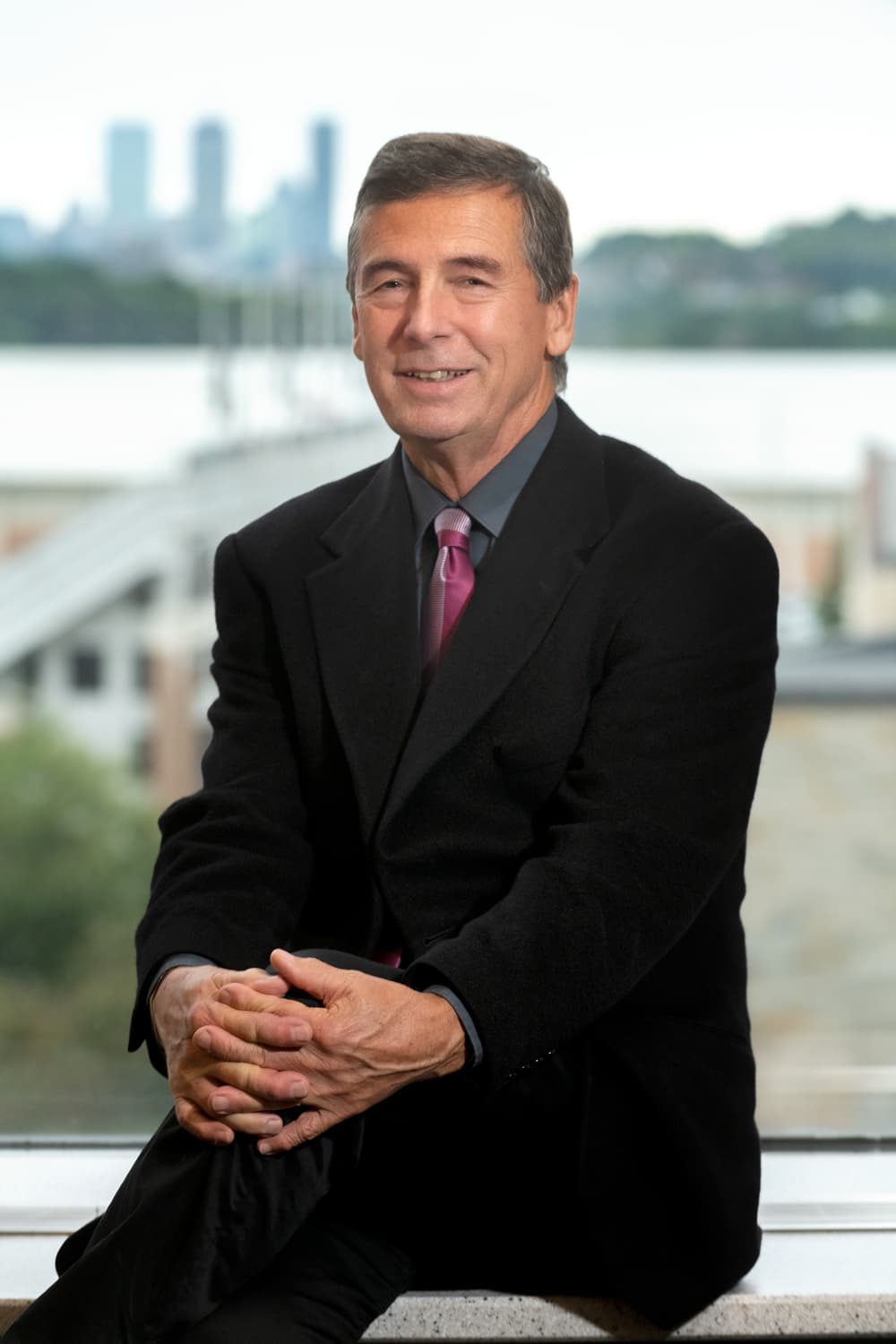In the air and on the sea, pollution goes under the radar
Global efforts to manage the climate crisis are endangered by the rapidly growing emissions from international aviation and shipping, sectors weakly regulated by two obscure agencies for nearly three decades, according to Controlling International Shipping and Aviation Emissions: Governing the Global Climate Crisis, a new book by Boston College Political Science Professor and climate policy expert David Deese.
Many greenhouse gas reduction mandates fall under the United Nations’ Paris Climate agreement. But the regulation of airline and shipping emissions has been assigned, since the Kyoto Protocol of 1997, to separate U.N. agencies: the International Maritime Organization in London and the International Civil Aviation Organization in Montreal.
“These two sectors and international agencies tend to operate ‘under the radar’,” Deese said. “Each is relatively understudied and poorly understood. Thus, it is urgent to understand why this regulation has failed to date, and how their emissions can be slowed and reach net zero by 2050.”

David Deese (Lee Pellegrini)
While much of the focus on greenhouse gas emissions is placed on automobile traffic and industrial activity, air pollutants from international shipping and aviation rival those of entire nations among the top ten greenhouse gas producers, according to Deese.
More than 50,000 merchant ships transport about 90 percent of global goods, and their total emissions have been equivalent to those from Germany. By 2022, Aviation had emitted at least 13 percent of all carbon dioxide from transportation sources, but that share is expected to grow as air travel passengers increase by as much as 100 percent by 2038, according to the International Aviation Transport Association.
“Unlike all of the emissions from sources reported and regulated by national authorities, these two sectors are essentially unregulated,” Deese said. “The control of international aviation and shipping emissions was delegated to two specialized agencies of the U.N. in 1997. Because the member states of these agencies have been unable to agree on the required regulations, these two sectors alone could undermine global management of the climate crisis.”
Deese’s book reveals why these two U.N. agencies have largely failed in their efforts and highlights the most promising emerging and feasible technologies to control and reduce greenhouse gas emissions in the ships that ply the seas and aircraft that travel the skies.
During the course of his research, Deese found the agencies remain almost deferential to industry and government sway. The agencies were originally designed to favor industry data and expertise, he said. In addition, they take input from government transportation representatives, rather than officials with environmental expertise.
To correct these faults, Deese says external pressure must be directed in order to accelerate agency processes; and firms and governments must emphasize alternative and parallel technologies and solutions to rapidly slow greenhouse emissions.
“It is essential to have U.S. and EU global climate leadership focus on persuading China, Brazil, India and like-minded developing states to support the standards setting processes required to slow these emissions,” Deese said.
While much of the focus on greenhouse gas emissions is placed on automobile traffic and industrial activity, air pollutants from international shipping and aviation rival those of entire nations among the top ten greenhouse gas producers, according to David Deese, author of 'Controlling International Shipping and Aviation Emissions: Governing the Global Climate Crisis.'
Reducing the use of fossil fuels poses a number of challenges both in the air and at sea. But Deese says there is a growing body of research on potential solutions. Deese himself has partnered with Boston College Professor of Chemistry and Department Chair Dunwei Wang to examine the feasibility of “green hydrogen” as one potential pathway to decarbonize global shipping in particular.
Deese said he was surprised to see how little attention is paid to these sectors. There has been excessive reliance on an emissions offset program enacted through the International Civil Aviation Organization, yet existing aviation regulation neglects emissions above an altitude of 3,000 feet, a layer of the atmosphere where primary global warming effects take place.
Deese said there needs to be a push to pursue parallel and alternative pathways to controlling growing emissions in these areas, such as the development of sustainable fuel stocks.
“That is going to require bringing more direct, consistent attention to the necessary international agency standards and regulations, and applying greater pressure to these agency processes by environmental groups, government delegations, and progressive industry actors,” Deese said. “I see this book as playing a part in reporting out to attentive audiences the major new developments in alternative pathways.”
